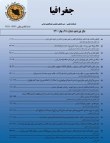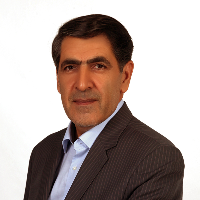Water Governance and Regional Development
The Case of Karkheh Irrigation Area (Khuzestan, Iran)
Water and its ancient exploitation methods in Iran, which a large part of its territory is characterized as arid and semi-arid, has continuously played a determinant role in establishment of cultural landscapes and as a whole, in its socio-economic developments.
With the beginning of modernization and turning to new planning methods, with introducing interim development plans (from 1948 onwards), along with the implementation of Land Reform Act (1962), and perhaps most importantly, the change in the state's basic incomes from taxes and duties (shareholdings) to oil, with growth of urbanization and expansion of industrial activities, the country witnessed unprecedented changes in large scale water management, with focusing a completely centralized framework and dominant role of state. . After the Islamic Revolution (1979), the process of increasing the country's capacity to exploit the water resources was expanding unprecedentedly. During the period, regional development programs, with emphasis on water resources, in new land areas, with comparative advantage, gave way to implementation of development plans throughout the country. Thus, the attitude toward water resource management and its governance has received somewhat new features. This article tries to study these processes and approaches to water governance and their role in balanced and sustainable development, and, as well as, their spatial
implications as a case, in the Karkheh irrigation zone(Khuzestan). The study was conducted on the basis of a mixed (quantitative and qualitative) method, using structured questionnaires and interviews, group focused discussion sessions and non-cooperative observation and discussion. Efforts have been made to review the Karkheh Irrigation Development Plan, based on the points of views of all stakeholders at various national, regional and local levels (including managers and experts from different fields, such as university professors, experts in water, agriculture, environment, development planning, local community representatives and common beneficiaries of the project), by using the methods of individual and group interviews.
- حق عضویت دریافتی صرف حمایت از نشریات عضو و نگهداری، تکمیل و توسعه مگیران میشود.
- پرداخت حق اشتراک و دانلود مقالات اجازه بازنشر آن در سایر رسانههای چاپی و دیجیتال را به کاربر نمیدهد.



